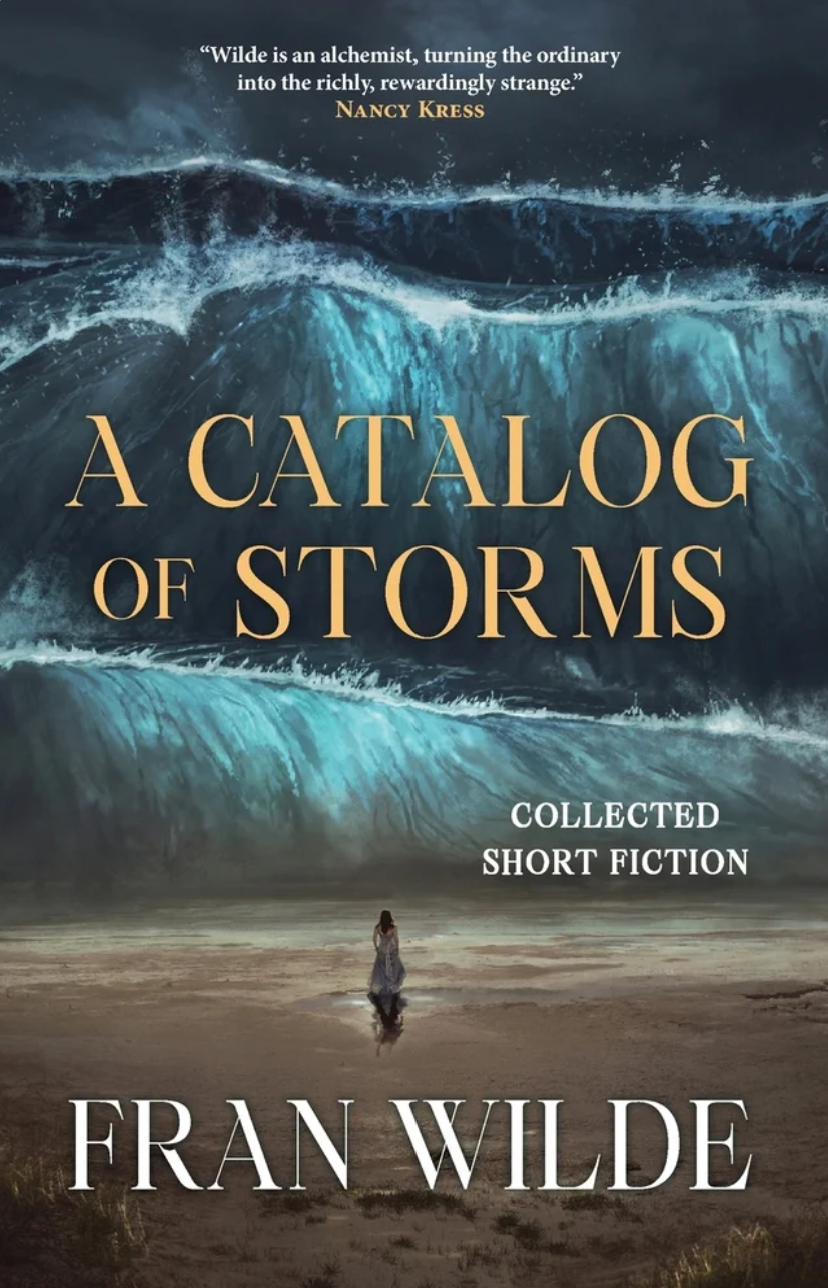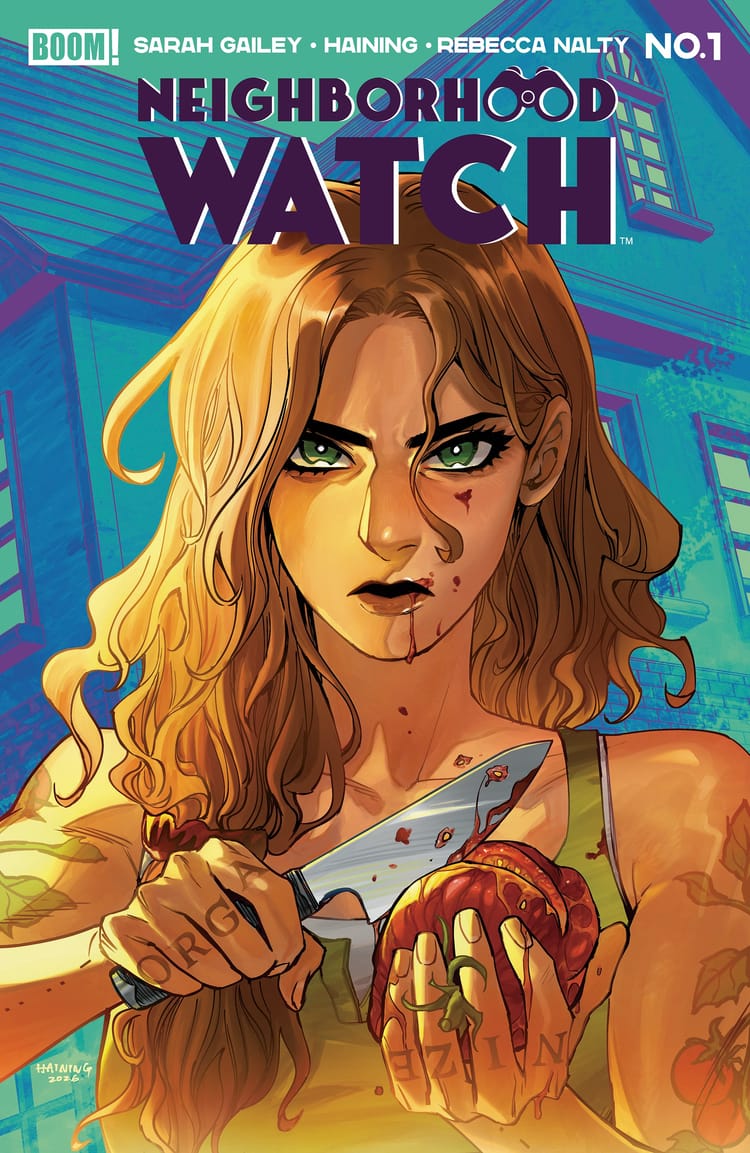Guest Host Fran Wilde

Welcome to the Stone Soup Digest! This is where I share what I'm up to and some of my favorite things from around the internet. Subscribe to Stone Soup to get this in your inbox every week.
Hey friends! This is the first Digest you’ve seen in your inbox in a little while. I’ve been on sabbatical, and then my sabbatical ended more or less on the day I was in Ann Arbor to deliver a keynote speech on censorship, authoritarianism, and criminality.
And then one hour before I was to deliver my keynote… I tested positive for COVID.
And I am still testing positive for COVID.
Over two fucking weeks later.
I’ve been in deep quarantine rest mode while trying to keep up with the mountain of “do this once sabbatical is over!” deadlines that were lurking on my calendar, waiting for the end of July. Those two things don’t really go together, so I’m currently a pendulum that swings back and forth between my desk and the bed (at least I’m easy to find?). In the interest of trying to outlive the pernicious virus that’s currently camped out in my sinuses, I won’t be back to regular weekly digests for at least another few weeks.
But fret not! The legend herself, Fran Wilde, is here to take the wheel this week. Fran is a two-time Nebula Award-winner. She’s published nine novels, a poetry collection, and over 70 short stories for adults, teens, and kids. Her stories have been finalists for multiple Nebula, World Fantasy, Hugo and Locus Awards, and a Lodestar. They include her Nebula- and Compton Crook-winning debut novel Updraft, and her Nebula-winning, Best of NPR 2019, debut Middle Grade novel Riverland. Her short stories appear in Asimov’s Science Fiction, Tor.com, Beneath Ceaseless Skies, Uncanny Magazine, and multiple years' best anthologies.
As the Managing Editor for The Sunday Morning Transport, Fran teaches or has taught for schools including Vermont College of Fine Arts’ MFA and St. Mary’s College of Maryland. She writes nonfiction for publications including The Washington Post, The New York Times, NPR, and Tor.com. You can find her on Instagram, Bluesky, and at franwilde.net.
Most importantly of all: Fran’s first short fiction collection, A Catalog of Storms, publishes this coming Tuesday, 8/12, from Fairwood Press. You can order your copy right this minute:

From sentient storms to walkabout skyscrapers, mythical creatures to mysterious museum guides, the characters and tales of the 14 stories in Fran Wilde's A Catalog of Storms challenge and subvert expectations.
Here you'll find the Nebula and Hugo Awards finalists "A Catalog of Storms" and "Clearly Lettered in a Most Steady Hand," and multiple Best of the Year anthology selections such as "Shadow Plane" and "The Rain Remembers What the Sky Forgets."
The collection represents a decade of genre-spanning, celebrated stories from one of SFF's most inventive and lyrical voices.
Barnes & Noble | Find an Indie Bookstore
Take us away, Fran!
-gailey
Gailey told me to pick 4-5 of my faves from around the internet, but when it comes to faves, I cannot count. Thus, you win, friends. I hope you find a thing or two that brings you joy.
Photos from the Vera Rubin observatory
There are multiple star nurseries in these first pictures from the observatory, and the idea of star nurseries gives me joy… and so does the thought of what else we will get to learn about our universe from this viewpoint. (GO SCIENCE GO.)
Karl Ove Knausgaard’s “The Reenchanted World,” Harper’s Magazine 6/25
A multifaceted essay, with crab intelligence networks, how AI sees us, and water mines in Greece, that’s delving into the natural world and the world as viewed through and by technology. My daughter shared it with me, and I had to read it slowly, in pieces, because my mind kept racing ahead, making plots, as it sometimes does. But I wanted to parse Ove’s ideas out, and to look deeper into what was being said, and not just at what I thought about what was being said. And then I had to follow all the threads and people mentioned and it’s just delightful.
What Natural Intelligence and Thinking in an Active State Looks Like
A while back, as I was learning to paint again, a teacher shared this article, and the idea of drawing without seeing kind of synched up with the rest of how I’m thinking about intelligence, artificial and otherwise right now.
Mothman and Eli visit the Cryptid Museum by Izzy Wasserstein
Really, everything in the Sunday Morning Transport, including Gailey’s own stories (Such an Honor & The Daily Commute), but Izzy’s story is new and glorious and thoughtful and also free-to-read, so you should go read!
Michael Wilkinson, the lead costumer for Andor
I’m kind of obsessed with his instagram.
Radioactive Wasp nest
Behold! Law of unforeseen consequences, part 45379.
The Netflix show Glass Heart (2025)
– which launched in July, is about a Japanese band as it forms and finds fame. The show does a very particular set of things with color and visual narrative that delight me, and also looks at genius and what success does to artists, and family, and self doubt. It’s just sweet and fun and painful, and I’m 4 episodes in and am not stopping.
Fran is Currently Reading: Ways of Being: Animals, Plants, Machines: The Search for a Planetary Intelligence by James Bridle
What does it mean to be intelligent? Is it something unique to humans or shared with other beings—beings of flesh, wood, stone, and silicon? The last few years have seen rapid advances in “artificial” intelligence. But rather than a friend or companion, AI increasingly appears to be something stranger than we ever imagined, an alien invention that threatens to decenter and supplant us.
At the same time, we’re only just becoming aware of the other intelligences that have been with us all along, even if we’ve failed to recognize or acknowledge them. These others—the animals, plants, and natural systems that surround us—are slowly revealing their complexity, agency, and knowledge, just as the technologies we’ve built to sustain ourselves are threatening to cause their extinction and ours. What can we learn from them, and how can we change ourselves, our technologies, our societies, and our politics to live better and more equitably with one another and the nonhuman world?
The artist and maverick thinker James Bridle draws on biology and physics, computation, literature, art, and philosophy to answer these unsettling questions. Startling and bold, Ways of Being explores the fascinating, strange, and multitudinous forms of knowing, doing, and being that make up the world, and that are essential for our survival.
Barnes & Noble | Local Library | Find an Indie Bookstore
Fran Recommends: Sunward by William Alexander
Captain Tova Lir chose a life as a courier rather than get involved in her family’s illustrious business in politics. Set in humanity’s far future, hiring a planetary courier is essential for delivering private messages across the stars.
Encouraged by friends, Tova begins mentoring baby bots, juvenile AI who are developmentally in their teens, and trains them how to interact within society essentially becoming their foster mom. Her latest charge, Agatha Panza von Sparkles, named herself on their first run from Luna to Phoebe station. But on their return, they encounter a derelict spaceship and a lurking assassin, igniting a thrilling chase across the solar system.
Tova and Agatha’s daring actions leave Agatha’s mind vulnerable, relying on Tova’s former AI pupils for help. As Tova starts gathering her scattered family around her, she is chased through the solar system by forces who want her captured and her family erased. This debut science fiction novel by National Book Award–winning author William Alexander is a must-read for fans of Becky Chambers and Ursula K. Le Guin. Lovers of poignant science fiction, where the bonds of found family, the evolution of AI, and the building distrust of centuries of bias, come together in this visionary look at humanity’s future.
Barnes & Noble | Local Library | Find an Indie Bookstore
Thank you, Fran!!
If you’re a paying subscriber, come say hello in the Supper Club and share the ways you’re connecting with and supporting your local community. Remember to drop your local mutual aid networks so we can put them in future issues of the Digest.
If you want to support Stone Soup without a regular subscription, feel free to drop a one-time donation into our tip jar.
In the meantime, do what you can. Care for yourself and the people around you. Believe that the world can be better than it is now. Never give up.
—gailey





Member discussion